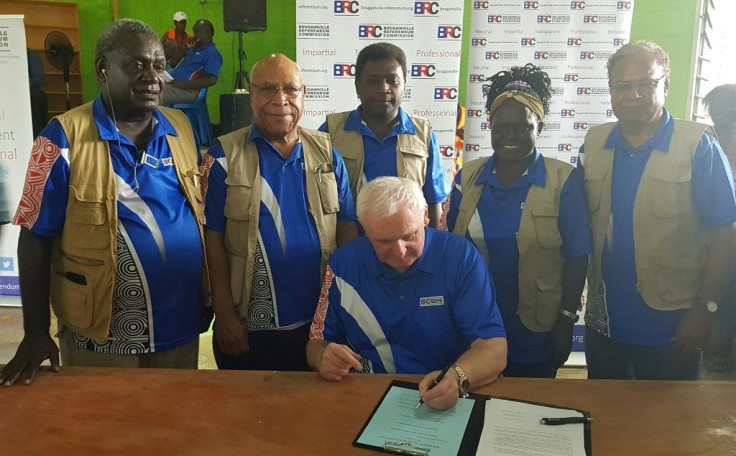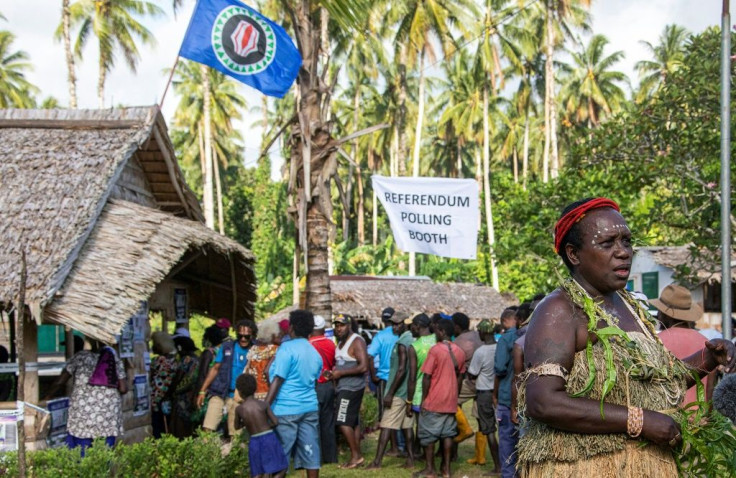Bougainville Independence Vote A 'Shockwave' For PNG: Ahern

The scale of Bougainville's landslide vote for independence has sent "shockwaves" through Papua New Guinea's government, referendum chair Bertie Ahern told AFP Thursday, urging a quick start to talks on secession.
"I think they were surprised in Port Moresby," Ahern said, after overseeing a referendum that saw 98 percent of Bougainvilleans reject greater autonomy inside Papua New Guinea, in favour of a split from their neighbours across the Solomon Sea.
"They certainly thought that there would be a respectable percentage in favour of greater autonomy," he said. "I think they would have thought that maybe 20 percent or something."
"That has sent its own shockwaves through their system and I think there is a kind of realisation that this has happened because of years of neglect and not following commitments."
The referendum was consultatory and must be ratified by Papua New Guinea's parliament, where there is fear Bougainville's departure might spark a rush of regions calling for greater autonomy from an already weak central government.
But the scale of the victory made independence "all but inevitable" according to Shane McLeod of Sydney's Lowy Institute, even though, he said "it will be potentially destabilising for PNG's domestic politics."
So far the response in Port Moresby has been cautious, with Prime Minister James Marape saying "the government has heard your voice" and stressing the need for a "lasting political settlement that the national parliament can consider."
Ahern said that initial response was encouraging and he was "delighted" with Marape's decision to visit Bougainville on Friday.
"That's good that they are moving decisively and quickly," he said, "that helps to change the dynamics of a relationship that is, you know, fairly lousy."
Wednesday's vote caped a decades-long peace process and a long recovery from a brutal civil war between Bougainville rebels, Papua New Guinea security forces and foreign mercenaries that ended in 1998 and left up to 20,000 people dead -- 10 percent of the population.

Ahern said there was no expectation that Bougainville's independence would come quickly.
"Nobody expects this all to happen overnight, nobody would be ready for that even if there was a miracle."
But he said the ball needs to start rolling, with parties "looking at a plan, looking at a timescale, maybe having a five-year framework, having deliverables early on."
"The important thing now is engagement," said Ahern. "To get a process that is a peace process moving on to the next stage and that's what is going to be necessary if you want to keep the momentum going."
For the last two years Ahern -- a former Irish prime minister who help shepherd Northern Ireland's peace process -- has been chairman of the Bougainville Referendum Commission, but he indicated he may play only a supporting role in the next step of the process.
"The practicality of being 36 hours away, even when every flight goes right, I've done two years hard at this, back and forward every six or seven weeks, that's not easy."
"If I can help them or advise them from a distance, I certainly will do so."
© Copyright AFP 2024. All rights reserved.




















